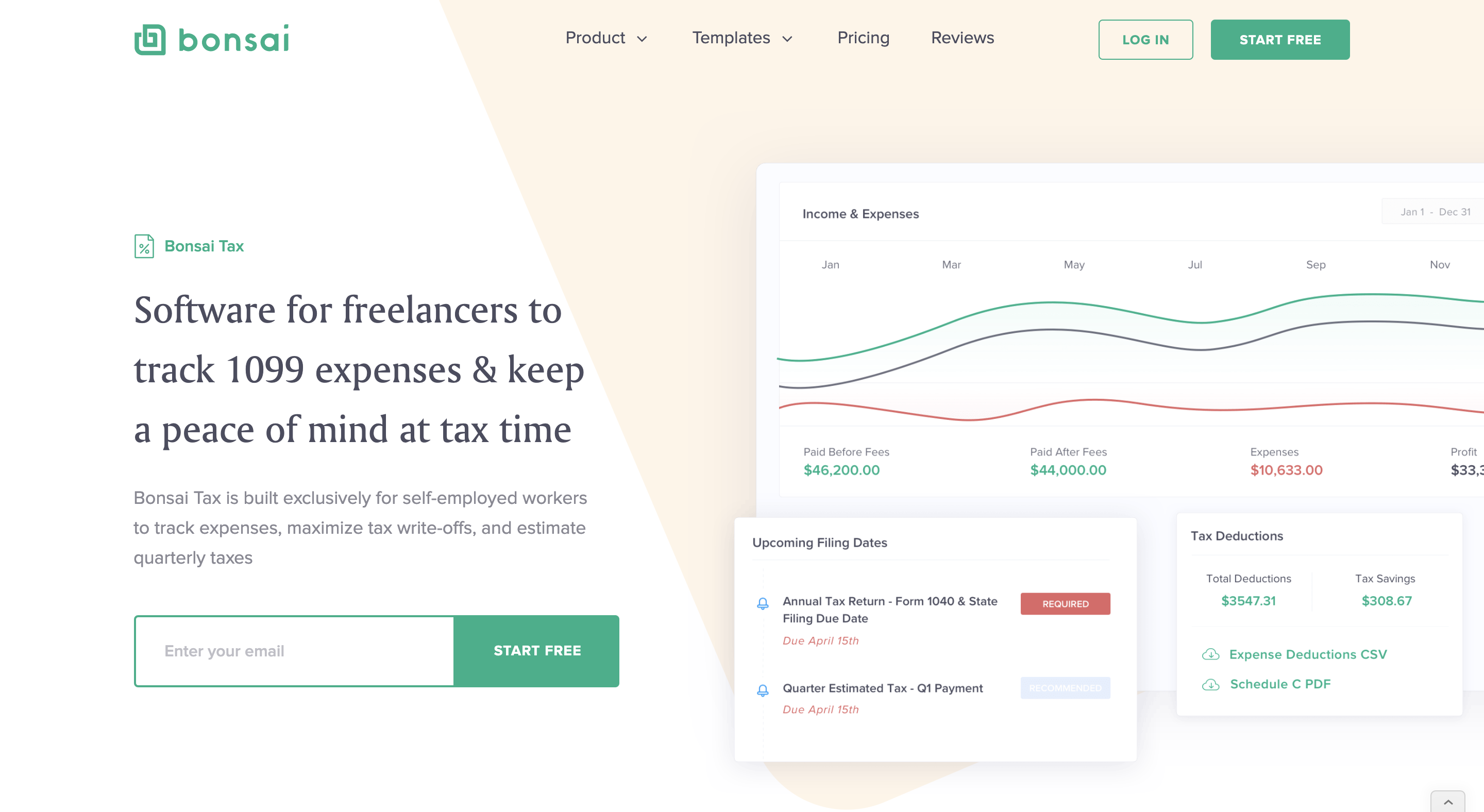Viele Menschen verwechseln Einzelunternehmen mit Selbstständigen. Zunächst möchte ich darauf hinweisen, dass Selbstständige und Einzelunternehmen ein und dasselbe sind. Da ein Einzelunternehmer sein Unternehmen alleine betreibt, gilt er als selbstständig.
Ein Selbstständiger ist einfach eine Person, die für sich selbst arbeitet. Es ist nur ein Geschäftsbegriff. Ein Einzelunternehmer ist jemand, der ein Unternehmen allein besitzt.
Ein Einzelunternehmer arbeitet nicht wie ein traditioneller Angestellter für ein Unternehmen. Anstatt einen festen Stundenlohn oder ein festes Gehalt zu erhalten, würde ein Einzelunternehmer sein Einkommen dadurch erzielen, dass er unsere Dienstleistungen oder Waren an verschiedene Kunden oder Unternehmen verkauft. Sowohl unabhängige Auftragnehmer als auch Einzelunternehmer sind selbstständig.
In diesem Artikel gehen wir darauf ein, was es bedeutet, ein selbstständiger Einzelunternehmer zu sein.
Hinweis: Wenn Sie Einzelunternehmer oder selbstständiger Auftragnehmer sind und Hilfe bei der Rechnungsstellung, Vertragsgestaltung, Steuererklärung und Angebotserstellung benötigen, probieren Sie Bonsai aus. Unsere All-in-One-Software für Freiberufler erleichtert Ihnen die Führung Ihres professionellen Unternehmens. Überzeugen Sie sich selbst, wie viel Zeit Sie sparen können, indem Sie noch heute eine kostenlose 7-Tage-Testversion.

Sind Einzelunternehmer dasselbe wie Inhaber eines Kleinunternehmens?
Die Small Business Administration definiert ein Einzelunternehmen als ein nicht eingetragenes Unternehmen, das einer einzelnen Person gehört und von dieser geführt wird (Ein-Personen-Unternehmen). Es gibt keinen Unterschied zwischen dem Unternehmen und seinem Eigentümer. Da das Unternehmen und der unabhängige Auftragnehmer identisch sind, haftet der Einzelunternehmer für alle Verluste, Schulden und Verbindlichkeiten des Unternehmens.
Ein Kleinunternehmer hingegen verfügt in der Regel über ein Team von Mitarbeitern oder beauftragt unabhängige Auftragnehmer mit der Führung seines Unternehmens. Ein Einzelunternehmer kann im Allgemeinen als ein kleines Unternehmen mit dem Status „ “ definiert werden.
Auch hier gilt: Ein Einzelunternehmen bietet keinen Vermögensschutz. Da die Geschäftseinheit nicht von der Person getrennt ist, gelten Geschäftsvermögen als persönliches Vermögen und umgekehrt.
Sie beantragen keine Satzung bei Ihrem Bundesstaat, daher gibt es keine separate juristische Identität als Unternehmen.
.jpeg)
Beschränkter Haftungsschutz
Viele Unternehmen, insbesondere Freiberufler und Beratungsorganisationen, beginnen als Selbstständige, die sich zu Kleinunternehmern entwickeln oder ihre Unternehmensstruktur im Zuge ihres Wachstums ändern. Eine LLC oder Gesellschaft mit beschränkter Haftung ist eine gängige Struktur für kleine Unternehmen zum finanziellen Schutz. Für Kleinunternehmer mit einer formellen Unternehmensstruktur bestehen unterschiedliche persönliche finanzielle Risiken und rechtliche Verpflichtungen.
Eine LLC ist eine Mischform aus Einzelunternehmen und Kapitalgesellschaft. In Bezug auf steuerliche Zwecke kann es
Es wird in der Regel empfohlen, so bald wie möglich eine LLC oder juristische Person zu gründen, wenn Sie Ihr eigenes Unternehmen gründen.
Unabhängige Auftragnehmer können als Unternehmen registriert sein, aber die meisten sind Einzelunternehmer.
Beispiele für Selbstständige, die vom IRS als unabhängige Auftragnehmer angesehen werden, sind Grafikdesigner, Schriftsteller, Therapeuten, Buchhalter, Chiropraktiker und Künstler. Ein unabhängiger Auftragnehmer kann auf Vertragsbasis für mehrere Unternehmen gleichzeitig arbeiten.
Je nachdem, wie viel Kontrolle die Person in ihrem Beruf hat, kann sie für steuerliche Zwecke als unabhängiger Auftragnehmer betrachtet werden. Wenn Sie beispielsweise Angestellter sind, wird Ihr Arbeitgeber Ihnen Anweisungen geben, wie Sie Ihre Arbeit zu erledigen haben oder wie Sie die erwarteten Ergebnisse erzielen sollen.

Einzelunternehmer/unabhängige Auftragnehmer müssen Selbstständigensteuern auf ihre Geschäftseinkünfte zahlen.
Selbstständige haben keine Einkommenssteuer, die von ihrem Arbeitgeber von ihrem Gehalt einbehalten wird. Obwohl Auftragnehmer und Einzelunternehmer sich selbst bezahlen, müssen sie dennoch Sozialversicherungs- und Medicare-Steuern auf ihr Einkommen zahlen.
Als selbstständiger Unternehmer müssen Sie die Steuern für Selbstständige sowie die Lohnsteuern auf Ihr Einkommen schätzen, abziehen und bezahlen. Die Selbstständigensteuer (Sozialversicherungs- und Medicare-Steuern) macht 15,3 % aus. Als Einzelunternehmer geben Sie Ihre Gewerbesteuer auf dem Formular 1040/1040-DR oder im Anhang C Ihrer Steuererklärung an. Der Nettogewinn aus Ihrem Anhang C wird in Ihrer persönlichen Steuererklärung angegeben.
Wann sind Sie für Einkommenssteuern verantwortlich?
Die Selbstständigensteuer wird auf Geschäftseinkünfte angewendet, die am Jahresende über 400 Dollar liegen. Am Ende des Jahres erhält ein unabhängiger Auftragnehmer nur dann ein 1099-Formular für die Vergütung von Nicht-Arbeitnehmern, wenn er mehr als 600 US-Dollar an Einkünften aus selbständiger Tätigkeit oder anderen Einkünften erhalten hat. Das Formular 1099 enthält die Gesamteinkünfte, die von Kunden oder Unternehmen gezahlt wurden, für die der Auftragnehmer Dienstleistungen erbracht hat. Das Formular wird zur Berechnung der Einkommensteuererklärung Ihres Unternehmens verwendet. Alle Einkünfte aus geschäftlichen Aktivitäten müssen dem IRS gemeldet werden.
Auch wenn Sie möglicherweise nicht das Mindestbetrag von 600 Dollar erreichen, um ein 1099-Formular zu erhalten, müssen Sie möglicherweise dennoch Steuern auf Ihr Einkommen zahlen.
Mit unserem kostenlosen Online-Rechner können Sie Ihre Steuern für Selbstständige für das Jahr berechnen.
Hinweis: Wenn Sie nach einer sicheren Methode zur Verwaltung Ihrer Steuern als Einzelunternehmer suchen, probieren Sie Bonsai Tax aus. Unsere Steuersoftware kann Ihnen dabei helfen, Ihre Steuern zu schätzen, Ihnen Erinnerungen zum Einreichen Ihrer Steuererklärung zu senden und alle Ihre Steuerabzüge zu verfolgen. Tatsächlich sparen die meisten Nutzer 5.600 Dollar an Steuern. Probieren Sie noch heute eine 7-tägige kostenlose Testversion.

Aufschlüsselung der Einzelunternehmerschaft im Vergleich zu anderen Unternehmensformen
Es gibt viele Unterschiede zwischen einem Einzelunternehmer oder einem unabhängigen Auftragnehmer und anderen Unternehmensformen. Schauen wir uns einige davon an.
Der Einstieg ist ganz einfach
Der Hauptvorteil eines Einzelunternehmens besteht darin, dass es relativ einfach zu gründen ist. Ein Einzelunternehmer oder unabhängiger Auftragnehmer muss sich nicht als Kleinunternehmen bei der Landesregierung oder Bundesregierung registrieren lassen. Je nach Stadt oder Landkreis benötigen Sie möglicherweise eine Lizenz, um unter einem fiktiven Namen tätig zu sein.
Wenn Sie einen fiktiven Firmennamen verwenden möchten, auch DBA (doing business as) genannt, ist dies relativ einfach einzurichten.
Ein Einzelunternehmer ist keine juristische Person wie eine GmbH oder Aktiengesellschaft. Stattdessen sind die Person und das Unternehmen identisch. Als alleiniger Geschäftsinhaber sind Sie persönlich für alle Geschäftsschulden und Ihre persönlichen Finanzen verantwortlich.
Durch die Umwandlung in eine Kleinunternehmensstruktur genießen Sie maximalen Schutz vor persönlicher Haftung. Ihre geschäftlichen Ausgaben, Verbindlichkeiten/Schulden würden von Ihrem Privatleben getrennt sein. Wenn Sie Ihr Unternehmen ausbauen und Mitarbeiter einstellen, kann eine LLC sogar Ihr Vermögen vor Klagen unzufriedener ehemaliger Mitarbeiter schützen, wenn Ihr Unternehmen mehr Mitarbeiter als unabhängige Auftragnehmer einstellt.
Zusammenfassend lässt sich sagen, dass es weniger Anforderungen für Unternehmenssteuern, weniger Registrierungsgebühren, einfache Geschäftskonten und vereinfachte Unternehmensbeteiligungen gibt.
Vereinfachte Steuern
Als Einzelunternehmer müssen Sie sich über alle steuerlichen Verpflichtungen auf dem Laufenden halten. Glücklicherweise ist die Steuererklärung für einen unabhängigen Auftragnehmer oder Einzelunternehmer relativ einfach. Sie müssen keine separaten Steuern für Ihr Unternehmen einreichen. Sie können einfach alle Ihre geschäftlichen Einkünfte und Verluste in Ihrer persönlichen Einkommensteuererklärung angeben.
Mit dieser Einfachheit geht jedoch die persönliche Verpflichtung für Gerichtsurteile, Steuern und Schulden einher.
Wenn Sie Ihr Einzelunternehmen betreiben, sollten Sie Ihre geschäftlichen Ausgaben/Einnahmen getrennt von Ihren privaten Ausgaben verbuchen. Wir werden kurz einige gängige Steuerabzüge durchgehen, die Sie geltend machen können, um Ihre Steuerschuld zu senken.

Abschreibung von Betriebsausgaben
Einzelunternehmer können weiterhin Ausgaben wie Büromaterial, Kosten für die Unternehmensstruktur, Werbekosten, Geschäftsessen, Reisekosten und mehr mithilfe eines Formulars Schedule C steuerlich geltend machen.
Es ist also hilfreich, Ihre Ausgaben für Steuerzwecke zu erfassen. Wenn Sie als selbstständiger Unternehmer oder Einzelunternehmer Hilfe bei der Erfassung Ihrer Ausgaben benötigen, probieren Sie Bonsai Tax aus. Unsere Steuer-Software für Freiberufler scannt Ihre Bank-/Kreditkartenbelege, um automatisch steuerliche Absetzbeträge zu ermitteln. Tatsächlich sparen die meisten Nutzer bei ihrer Steuererklärung 5.600 Dollar an Steuern. Probieren Sie noch heute eine kostenlose 7-Tage-Testversion aus.
Kontrolle über Ihr Unternehmen
Im Rahmen der Geschäftstätigkeit hat der Einzelunternehmer die vollständige Kontrolle und Entscheidungsgewalt. Sie sind der alleinige Eigentümer des Unternehmens ohne Partner und können es nach Belieben führen.






